What are the procedure for receiving citizens' complaints regarding social insurance in Vietnam? - Xuan Mai (Tien Giang, Vietnam)
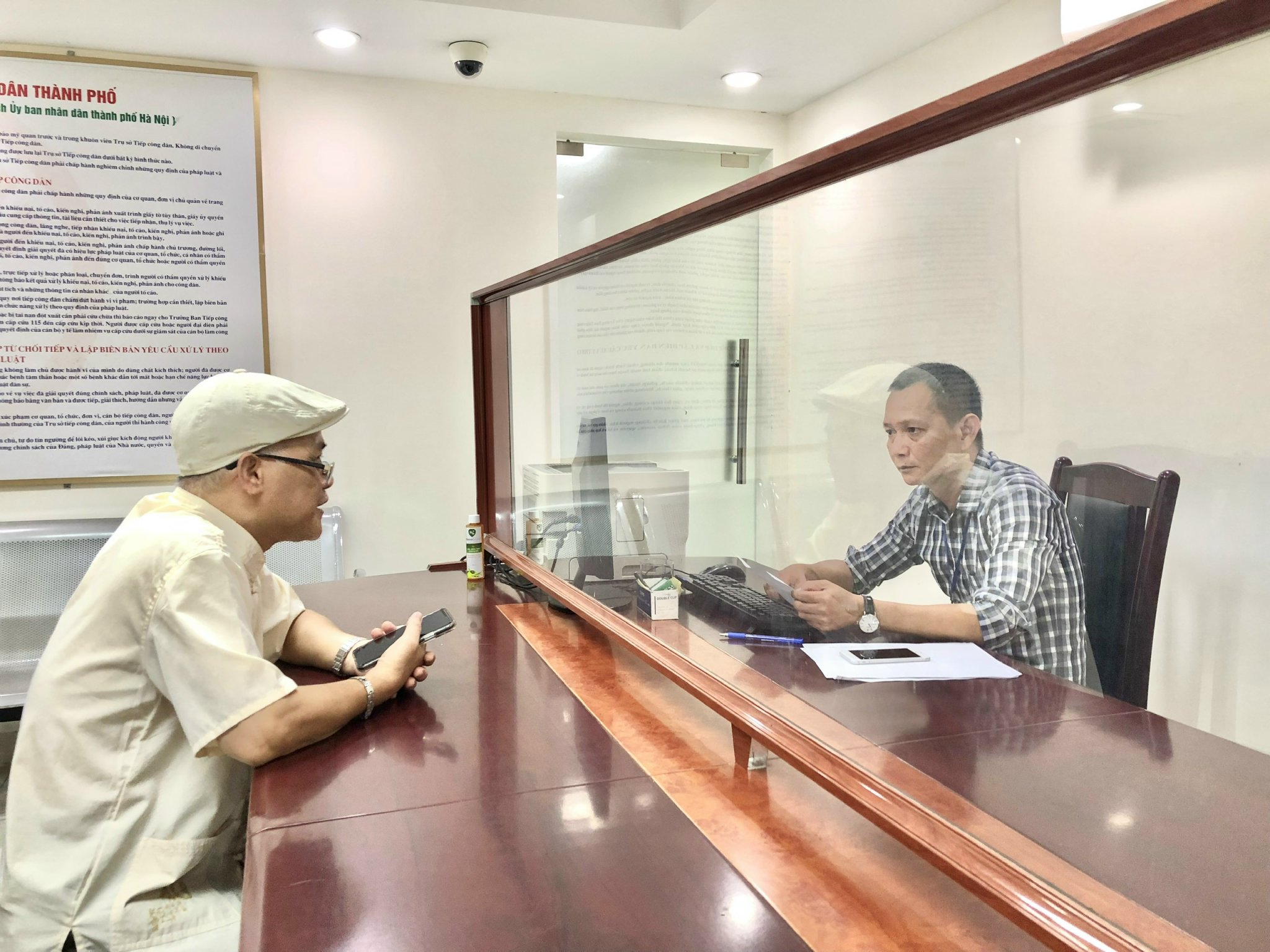
Procedure for receiving citizens' complaints regarding social insurance in Vietnam (Internet image)
Article 12 of Decision 378/QD-BHXH stipulates the procedure for receiving citizen as follows:
Step 1: Determine the identity and legitimacy of the complainant, denunciation, petition, and reflection
- Request the complainant, denouncer, petitioner, or reflector to clearly state their full name, address, or to present identification papers, referrals, powers of attorney, lawyer's cards, and legal assistant's cards (if any), and check the legitimacy of such documents to determine whether they are the person who personally made the complaint, denunciation, petition, reflection, or are a representative or authorized person;
- In cases where the person presenting is a representative or a lawfully authorized person, the following procedures shall be carried out: for complainants, petitioners, and reflections. Particularly for the denunciation case, the denouncer must directly make the denunciation according to the provisions of the Law on Denunciations;
In case the citizen who comes to present is the representative or authorized but fails to present the papers proving the legal representation or authorization, the application shall not be accepted, but they must clearly explain the reasons, guide citizens, representatives, and authorized representatives to carry out the necessary procedures to make complaints, recommendations, and reports in accordance with regulations.
Step 2: Dissemination of regulations on citizen reception
Disseminate to citizens the rules of citizen reception, the responsibilities of citizen receptions, and the rights and obligations of citizens who come to lodge complaints, denunciations, and petitions to reflect.
Step 3: Listen and take notes on what citizens present
The citizen-receiving person is responsible for requesting citizens to present, listen to, classify, and record fully, honestly, and accurately the contents of their complaints, denunciations, recommendations, and reflections; If any content is unclear, the citizen is requested to present more, then read it back to the citizen; ask the citizen to sign or point to the citizen reception book.
Step 4: Determine the content of the case, the citizen's request
After listening to the citizen's presentation and conducting preliminary research on relevant information, documents, and evidence provided by the citizen, the citizen receiving the citizen must determine the following contents:
- Location and time of the incident;
- Which individual, agency, organization, or unit is the complainant or denounced person;
- Contents of complaints, denunciations, recommendations, reflections, and competence to settle;
- Objects of complaints and denunciations;
- Process of consideration, settlement, and handling by competent agencies, organizations, and units (if any):
Agencies, organizations, and units that have settled; settlement results; form of settlement documents; handling of decisions by competent agencies, organizations, or units;
- Citizens' requests; reasons for complaints, denunciations, recommendations, further reflections, and new information, details and evidence provided by citizens in the case of further complaints, denunciations, petitions, and reflections.
Step 5: Handling each specific case
After determining the contents of the case and the citizen's request; based on records and documents (if any) and the provisions of law, if the contents of the case are simple or clear, then give specific explanations, instructions, and answers for citizens to understand and implement. In cases of necessity, report to the head of the unit to invite relevant individuals and specialized units to coordinate in explaining and replying to citizens. If the citizen does not agree with the explanation and reply of the citizen receiving the citizen and still continues to make complaints, denunciations, recommendations, and reflections, the handling shall be as follows:
- If they fall within their competence and are eligible to accept and settle the application, they shall receive the application; request citizens to provide information, documents, and evidences related to the contents of complaints, denunciations, petitions, reflections, and other relevant information, documents, and evidences (if any); check the legitimacy of information, documents, and evidences; and at the same time make a receipt (Form No. 01/GBN);
- In case the application falls within its competence but is not eligible for acceptance as prescribed by law, explain and guide citizens to know and supplement necessary procedures for making complaints, denunciations, recommendations, and reflections;
- In case the citizen has not yet submitted the application within his/her jurisdiction, he/she shall guide the citizen in writing a complaint, denunciation, recommendation, or reflection petition according to regulations. If the complainant, denunciation, petition, or reflection is incapable of writing a petition, he/she shall take notes on the content presented by the citizen, read it to the citizen, and request the citizen to sign or fingerprint the petition (if necessary, the recording shall be attached); if the content presented is not clear and complete, the citizen is requested to present or supplement documents and evidences;
- In case the application is within its competence but the application is signed by many people, the persons present shall be required to make a document to appoint a representative;
- In case the application contains part of the content falling under the handling competence of the social insurance agency, the citizen shall be instructed to rewrite the application for the contents falling within its competence for consideration and settlement; for contents that are not within their competence, they shall guide citizens to send them to the right competent agencies;
- In case the application is within its competence but contains both complaint and denunciation contents or recommendations or reflections, the citizen shall be instructed to make a separate complaint, denunciation, recommendation, or reflection according to regulations; and make a receipt (Form No. 01/GBN);
- In case the application falls under the handling competence of the head of the lower-level social insurance agency but has not been settled beyond the time limit, it shall be reported to the head of the agency requesting the lower-level social insurance agency for settlement, except for the case specified in Article 26. ;
- In case they are not within their competence, they shall guide citizens to competent agencies to lodge complaints, denunciations, recommendations, and reflections;
- In case the complaint, denunciation, recommendation, or reflection case has been settled in accordance with policies and laws; be examined, reviewed, and notified in writing by the social insurance agency or a competent state agency; if it has been received, explained, and instructed many times, but the citizens have deliberately made complaints, denunciations, petitions, or reflections for a long time, they shall report to the head of the agency issuing the Notice of refusal to receive citizens (Form No. 02/TCD);
- In case the denunciation comes from the complaint not achieving its purpose, citizens turn to denounce the complaint settler but fail to provide information, documents, and evidence to prove their denunciation: explain and guide citizens to make complaints in accordance with the Law on Complaints; not accept to settle denunciations; if the citizen does not comply, report it to the head of the agency that issues the Notice of refusal to receive the citizen (Form No. 02/TCD);
- In case a citizen requests information and results of handling complaints, denunciations, recommendations, and reflections, he/she must check and reply to the citizen on the progress or results of handling the complaint at the citizen's meeting;
- In cases where the citizen reception schedule is not met but the citizen still requests to meet to make complaints, denunciations, recommendations, or reflections, the citizen reception staff explains and guides the citizens to understand and register in the periodic citizen reception schedule of the head of the agency. If it is considered that the case is complicated and harsh, if not handled immediately, it may lead to bad consequences, affecting the image and reputation of the industry, agencies, and units: report to the head of the unit to submit to the head of the agency for consideration and the arrangement of unscheduled reception of citizens according to Clause 5, Article 8. If the head of the agency cannot receive citizens immediately but can agree on the next time, make an appointment slip (Form No. 03/TCD) or notify the date, time, and location of the reception to the citizen;
- In case a citizen causes disorder, has a harsh attitude, threatens, insults, or makes groundless demands, putting pressure on the social insurance agency, request citizens to stop the above-mentioned acts; if citizens still intentionally violate, then refuse to receive and coordinate with the agency's security division to take citizens out of the agency's headquarters, and at the same time report to the head of the unit for a plan for direction and support when necessary;
- In case a citizen commits acts causing damage or threatening to cause damage to the social insurance agency, the citizen receiving the citizen, or the citizen himself, the citizen receiving person uses technical means to record and videotape the above acts and promptly reports them to the head of the unit or the head of the agency to seek advice and direction, and if necessary, request the police agency in charge of the area to take handling measures in accordance with law.
Step 6: Make a receipt of records and documents.
During the process of receiving citizens, if the citizens provide dossiers and documents, the citizen receiving persons will only receive copies and photocopies and compare them with the originals (if any), and concurrently make a receipt (Form No. 01/GBN); which clearly states each type of information, document, evidence, status of information, document, evidence, and certification of the supplier. The receipt is made in 03 copies, 01 copy is delivered to the citizen, 01 copy is kept at the citizen reception place; 01 copy is kept in the file on settlement of complaints, denunciations, recommendations, and reflections (if any). In case the citizen has not provided sufficient dossiers and documents as prescribed, the person receiving the citizen shall make an appointment slip (Form No. 03/TCD) to request the citizen to provide additional information.
Step 7: Record the citizen reception book and enter it into the National Database on citizen reception, application processing, settlement of complaints, denunciations, petitions, and reflections.
During the process of receiving citizens, the person receiving the citizens must enter all the information exchanged, processed, and settled into the Citizen Reception Book (Form No. 04/STD) and the National Database on citizen reception, application handling, settlement of complaints, denunciations, recommendations, and reflections.
Ngoc Nhi
- Key word:
- Social insurance in Vietnam
 Article table of contents
Article table of contents
.jpg)

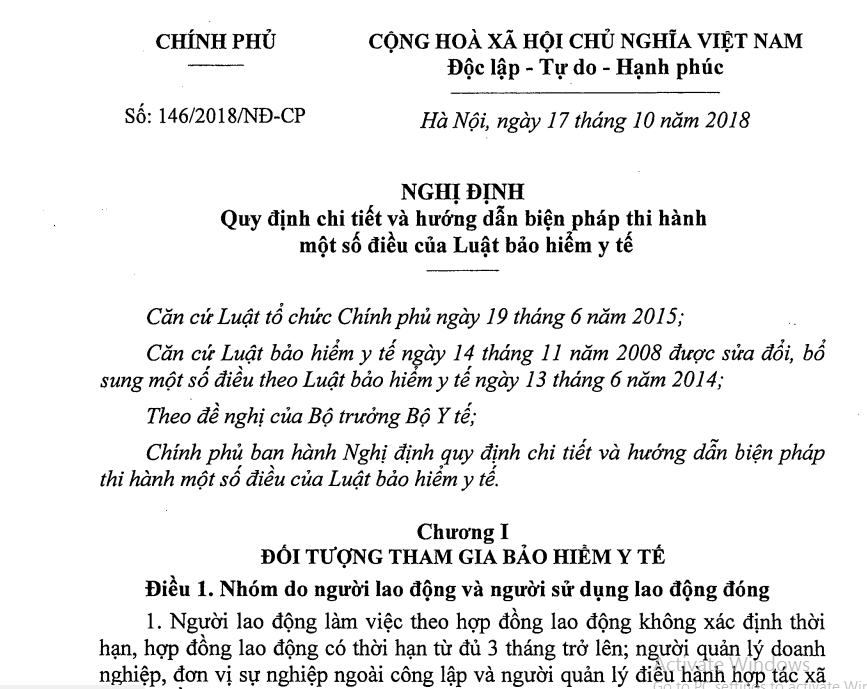
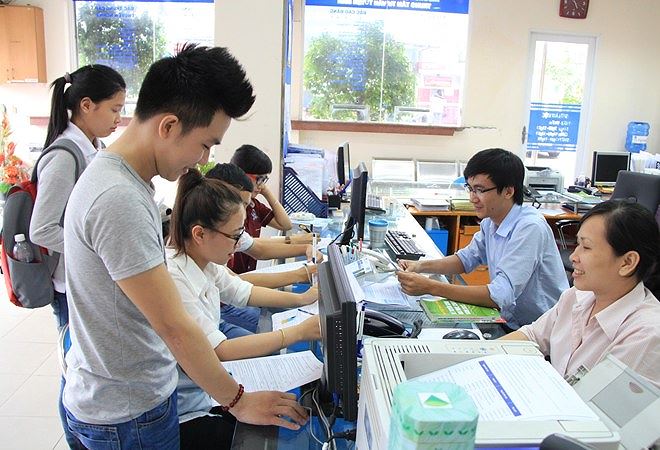

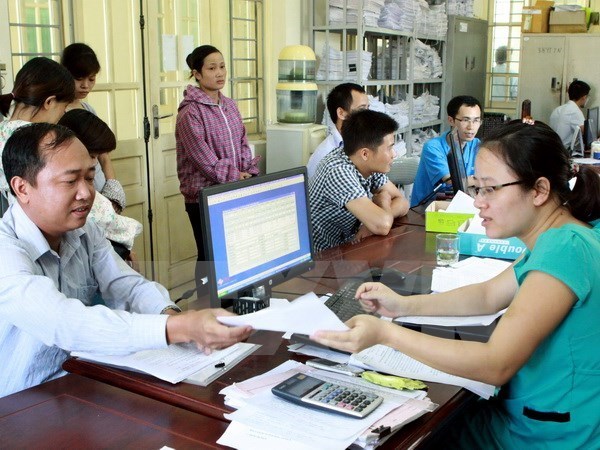

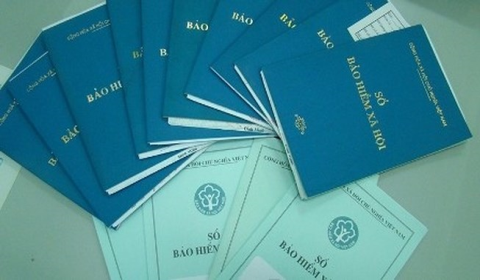
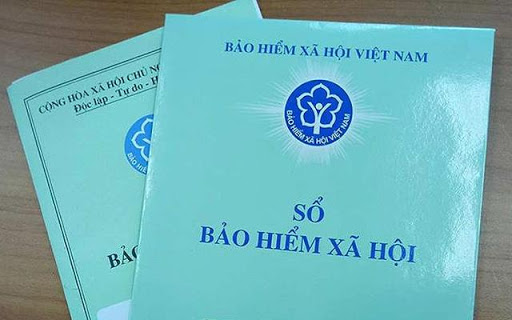

.Medium.png)
.Medium.png)
.Medium.png)
.Medium.png)
